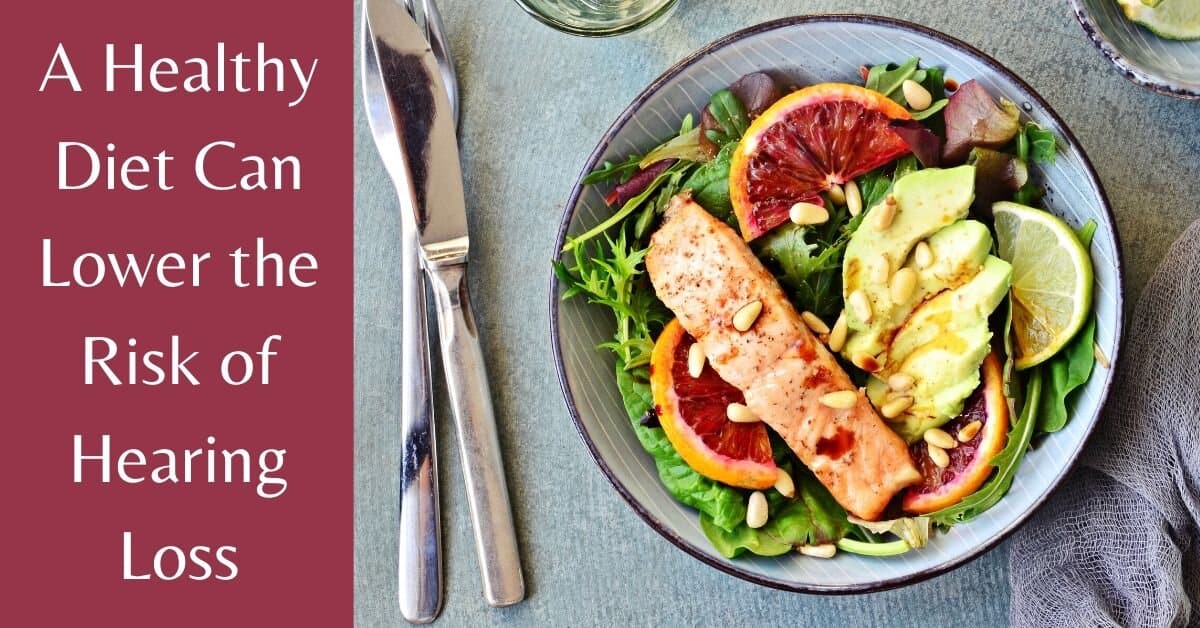Exciting new research from Brigham and Women’s Hospital, a cutting-edge international medical research institution, indicates that healthy eating does in fact reduce the risk of age-related hearing loss. While this has long been suspected, and some research has indicated that a diet rich in fruits, vegetables and seafood can preserve hearing into old age, this is the first study to quantifiably indicate the positive effects of a healthy diet on hearing health across a range of climates.
AMED and DASH
The study found that a group of mostly caucasian women who ate in line with the guidelines of the Alternate Mediterranean Diet (AMED) and Dietary Approaches to Stop Hypertension (DASH) had a very significant reduction in the risk and degree of hearing loss.
Both of these diets are high in whole grains, fruits and vegetables. They include moderate amounts of fish, poultry and nuts, and limited amounts of salt, sweets, sugary beverages and red meats. They keep us full of vitamins and minerals that our body needs to function well and repair itself, and they minimize saturated fats, cholesterol and trans fats. The foods consumed under these diets should be fresh, not cured, and the low-fat presentation of dairy items is stressed.
The Study Methods
The study took place over the course of three years, but utilized dietary data spanning over 20 years. Researchers utilized 19 testing locations throughout the United States, where licensed audiologists would measure the participants’ hearing ability at regular intervals. The audiologists used “pure-tone audiometry,” where sine waves (tones that occupy only one frequency over a long duration) are played and test-takers are asked to respond to them at different loudnesses, and the minimum loudness to which they respond is recorded. The study recorded responses to three different frequency ranges:
-
Low frequencies (500 Hz, 1 kHz, 2 kHz)
-
Mid frequencies (3 kHz, 4 kHz)
-
High frequencies (6 kHz, 8 kHz)
It’s important to note that, typically, we see a decline in high-frequency hearing ability first, then mid, then low. This is because the parts of our ears that perceive higher frequencies are more sensitive and thus more vulnerable to damage from loud noise or failure from age. The normal range of human hearing starts at 20 Hz and extends to 20 kHz, and nearly everyone sees a decline in perception of the extreme upper range over the course of a lifetime. 8 kHz, however, is a reasonable high frequency limit that someone might retain into later life, and can be important to understanding speech.
As noted above, the vast majority of participants in the study were caucasian women, and future repetitions of the study will likely involve additional population groups. The mean age of the women in this study was 59 years old, and most participants were in their 50s and early 60s. This is an age when most people’s hearing loss has not reached a degree where they start to notice problems, and therefore it is unfortunately rare that people in this age group have their hearing tested as part of a normal medical exam.
The Results
The results of the study surprised even the researchers, who were not expecting to see the level of hearing decline they did over a three-year time period. In the whole population of the study, 19% of participants showed hearing loss in the low frequencies, 38% showed hearing loss in the mid frequencies, and nearly 50% showed hearing loss in the high frequencies. The participants who ate healthier had a nearly 30% lower risk of hearing loss in the mid frequencies, and a 25% lower risk in the high frequencies.
The Takeaway
This is an extremely significant difference, and it puts into perspective just how important it is to get your hearing tested regularly. If a hearing healthcare professional can alert you to the fact that you’re starting to develop some hearing loss before it becomes significant to your ability to communicate with others, you can make lifestyle changes such as improving your diet or protecting your hearing better during certain activities so that you minimize your chances of hearing loss going forward.
Regular testing will also allow you to determine when the time is right to start using hearing aids. While some people put off getting hearing aids until they can barely hear the people around them, this is not recommended. As we lose our hearing ability, our habits and even the speech-recognition centers of our brains start to change. Research shows time and again that it is best to treat hearing loss before it becomes a big problem.

